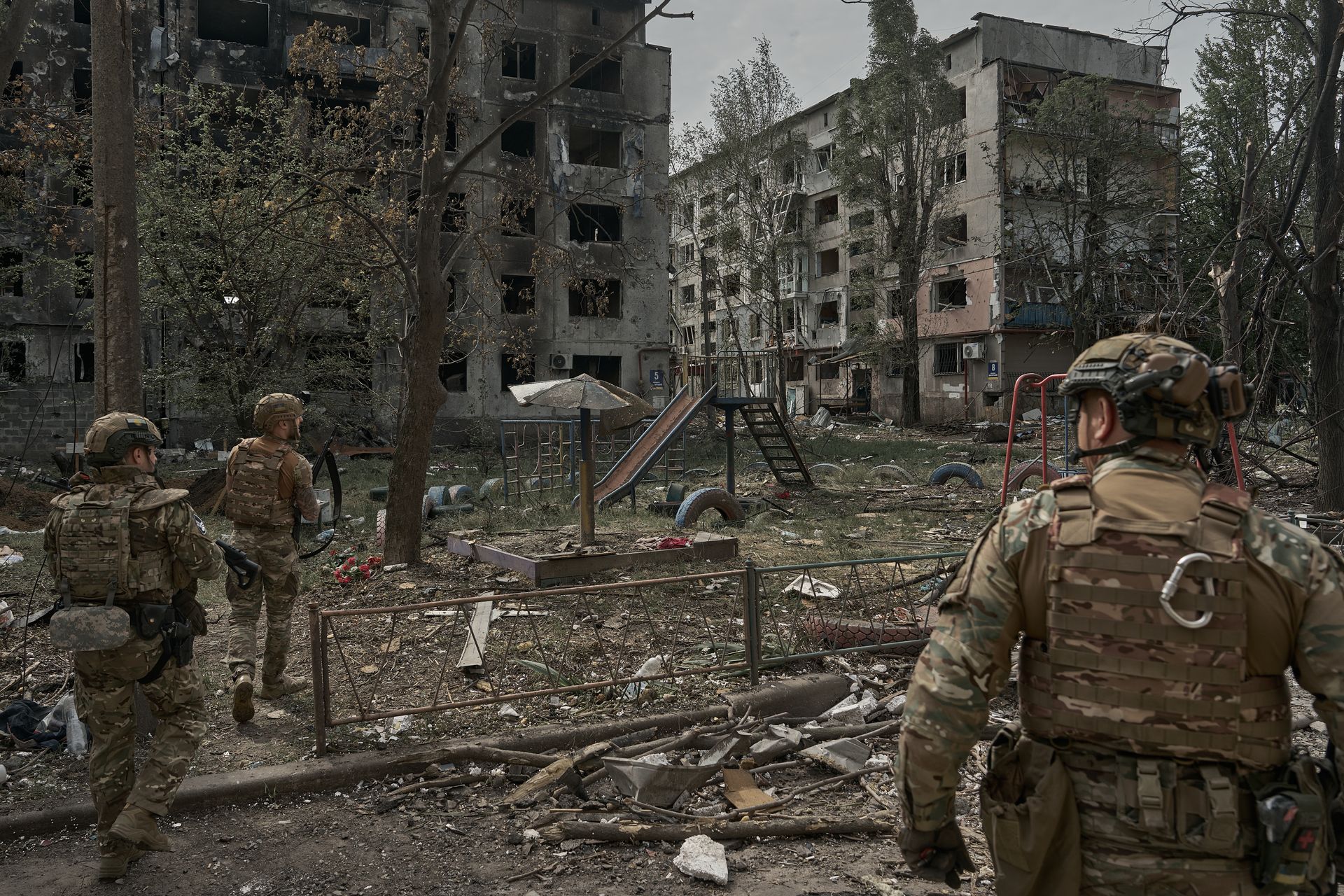Exclusive: Ukraine’s foreign legion to be effectively dismantled, volunteers sound alarm
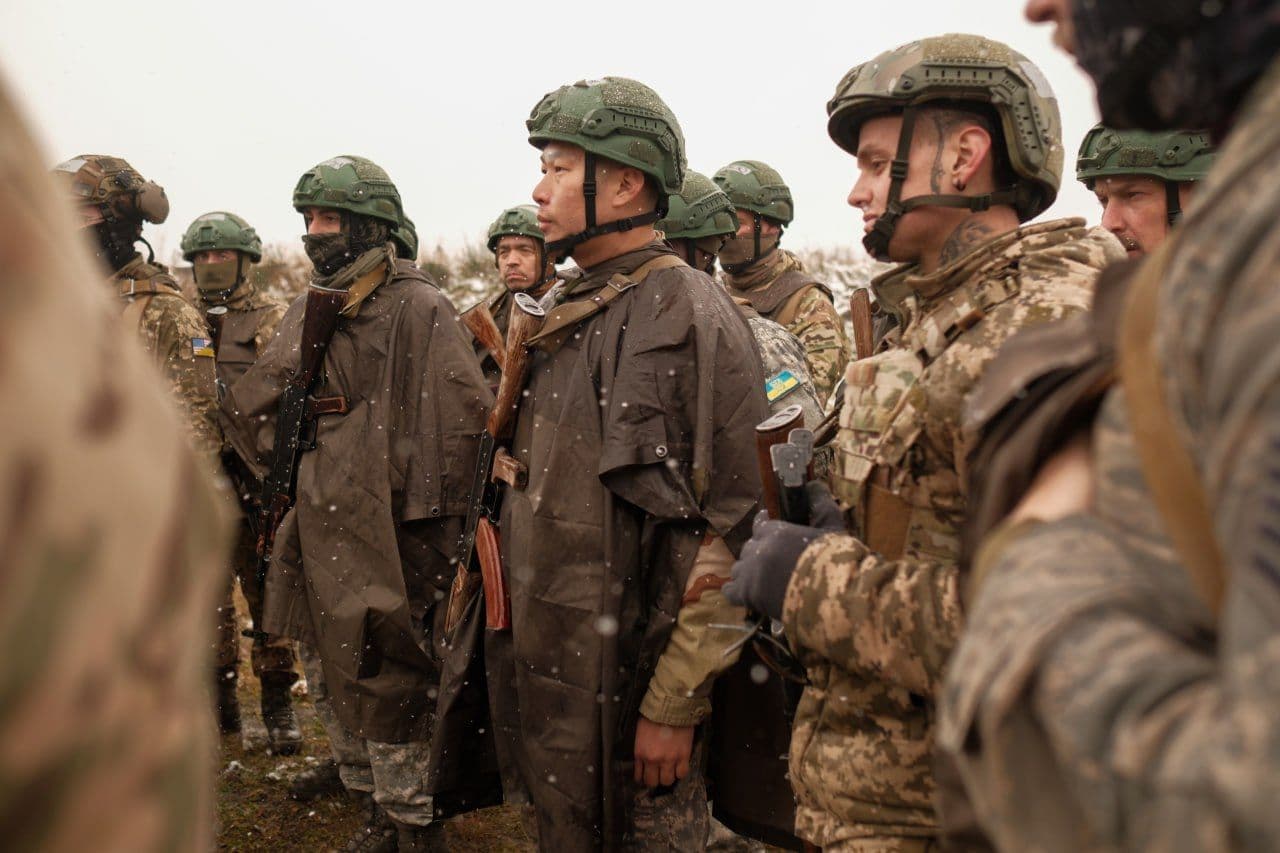
Training of the 4th Battalion of the International Legion in an undisclosed location, in a photo posted on Nov. 27, 2023. (International Legion for the Defense of Ukraine / Facebook)
Ukraine plans to effectively dismantle one of the main structures that has brought foreign volunteers into its ranks, the International Legion under the Ground Forces, according to sources, leaving legionnaires worried they will lose the unit's hard-won identity and be scattered into unfamiliar structures in a way they say could cost lives.
“Our biggest worry is just that we'll be moved around and units will be pulled apart, and we'll basically be funneled into where they feel like they need to put us in order to make this work,” a soldier who has fought with the Legion for a year and a half told the Kyiv Independent on condition of anonymity.
“This is (about a thousand soldiers) being moved into different areas, falling under their command, and with that kind of change will come mistakes. Mistakes that could have been prevented by just keeping the structure that we have now," he added.
The Ground Forces, which the Legion is subordinate to, has not responded to the Kyiv Independent’s request for reasons or more details about the expected structural change by publication time. The plan does not impact the other International Legion under the Defense Ministry’s military intelligence (HUR).
Founded in February 2022 at the request of President Volodymyr Zelensky, the Legion allowed foreigners to fight alongside the Ukrainian army, and has had both battlefield and political impact throughout the war.
The current plan involves the Legion’s three combat battalions being transferred separately to an assault regiment or brigade, an officer familiar with the matter told the Kyiv Independent on condition of anonymity. The officer, along with several legionnaires interviewed, said they are speaking out in an effort to preserve the Legion in its current form, arguing there is no need for a change.
It is unclear whether the assault regiment or brigade to which the legionnaires would be transferred will be under the command of Ground Forces or the newly created Assault Forces, according to the officer. The transfer is expected to be completed by the end of the year, the officer said, adding that the units would cease to exist under an independent umbrella of the Legion.
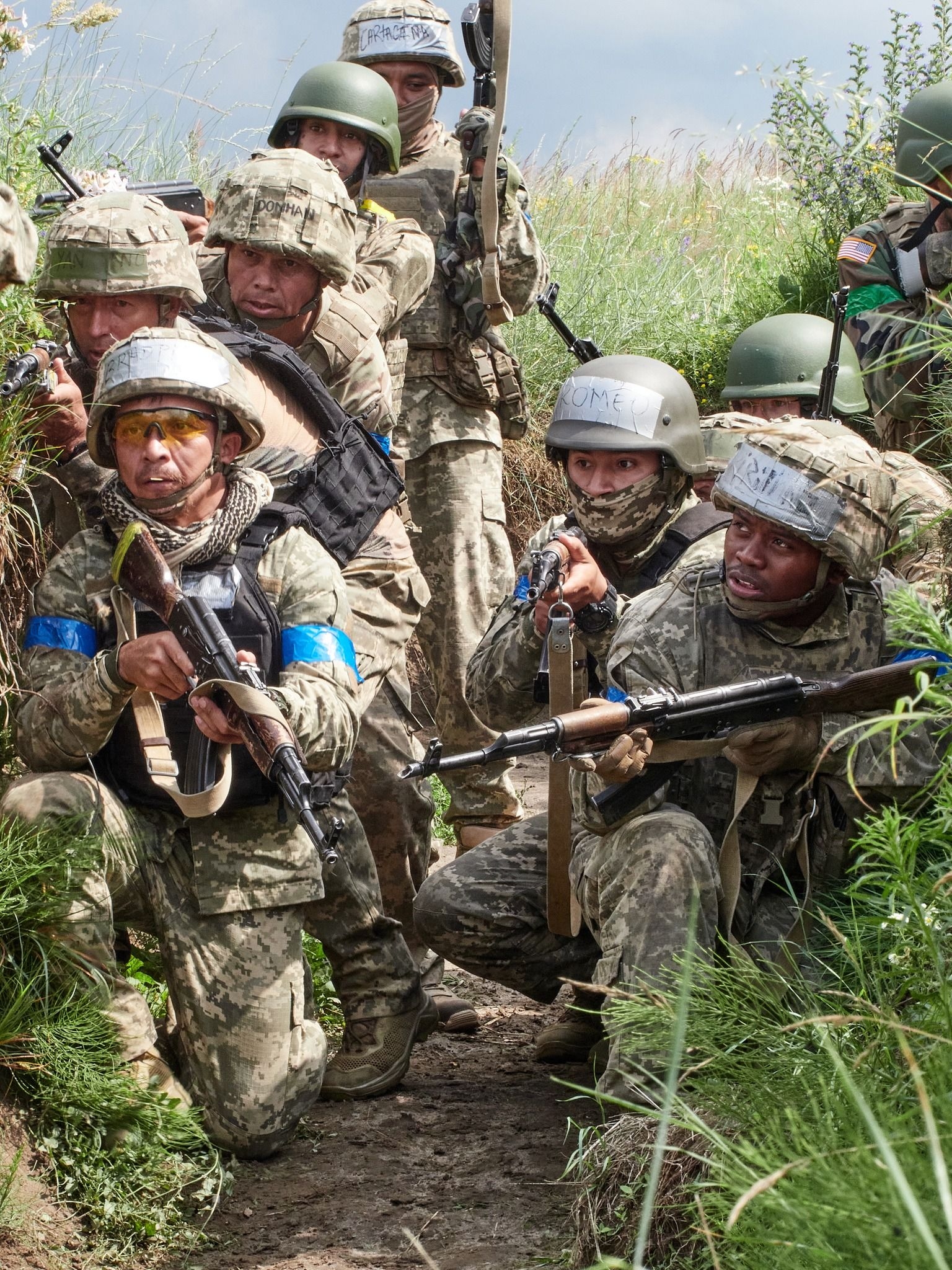
Colonel Valentin Manko, accused in October of breaching operational security on TikTok and criticized by Ukrainian journalists and volunteers for posting videos with inaccurate or overly optimistic battlefield assessments, heads the newly created Assault Forces, to which the Legion battalions could become subordinate. His appointment has remained in place despite the allegations, which Manko has denied.
In a Nov. 16 Facebook post, however, the Ground Forces said its system of working with foreign volunteers is changing to provide “better integration, equal opportunities with Ukrainian soldiers, and more rational use of human resources.”
“The key principle of the new model is to make the most effective use of their experience, motivation, and professional skills in the units where they are most needed,” the post said.
The transfer concerns around 1,000 soldiers from the first, second, and third battalions of the Legion, and the fourth training battalion will become a training center for new foreign volunteers to prepare them for war, the officer said.
“We understand that at least for some time, the effectiveness of the units would most likely decrease, and it would be difficult to replenish the units with foreign volunteers due to the loss of the International Legion brand.”
Knowing how to work with foreigners comes with experience, Colonel Ruslan Myroshnychenko, a former commander of the 2nd battalion who goes by the call sign “Santa,” said. Calling the planned change “absurd,” Myroshnychenko said that hard-won trust is at risk, especially for foreigners who left their home country and stood up to fight despite “a high probability to die.”
“All everyday affairs are built on trust,” Myroshnychenko told the Kyiv Independent. “If you lose trust, you lose the soldier. And then he will break the contract.”
The officer who spoke to the Kyiv Independent said the Legion has already adapted to the challenges of managing a large group of foreigners, integrating English and Spanish translators to ensure soldiers are fully briefed before missions. Ukrainian assault units, which would each take on a Legion battalion, would have to learn these practices from scratch, the officer said. The Legion now includes a large share of volunteers from Latin America, many of whom speak only Spanish.
“We understand that at least for some time, the effectiveness of the units would most likely decrease, and it would be difficult to replenish the units with foreign volunteers due to the loss of the International Legion brand,” the officer said.
The envisioned change would also add an unpredictable factor for the Ukrainian assault units that would work closely with legionnaires, since foreign volunteers have varying degrees of military experience and preparedness for war.
“I think that problems spread from unit to unit, unfortunately, much easier than positive experience,” the officer said.
Soldiers speak out
Four soldiers who spoke to the Kyiv Independent on the condition of anonymity said they worry about whether the new commanders will be prepared to work with foreigners, and described feeling shocked and saddened by what they see as the legion's "disbandment."
The soldiers said they were told about the coming change about a month ago, but still only know a few details, leaving them uncertain and anxious about what lies ahead.
Not everyone appears to have been informed of the change. A Brazilian volunteer soldier in the first battalion, who has served with the Legion for two years, said he had received no information and needed to speak with his commanders.
“Any time that you send an assault with people who are unprepared, all you're doing is setting people up for failure.”
The soldiers said they worry that new commanders may not know how to work with such a diverse group of foreigners with varying levels of military experience or accommodate their needs, such as translation. They stressed that the uncertainty could push volunteers either back to their home countries or to other units, since foreigners can break their contracts at anytime after the six-month mark.
Another Brazilian volunteer soldier who serves as a drone pilot in the Legion said he fears the change will fracture the unit and hurt foreign recruitment.
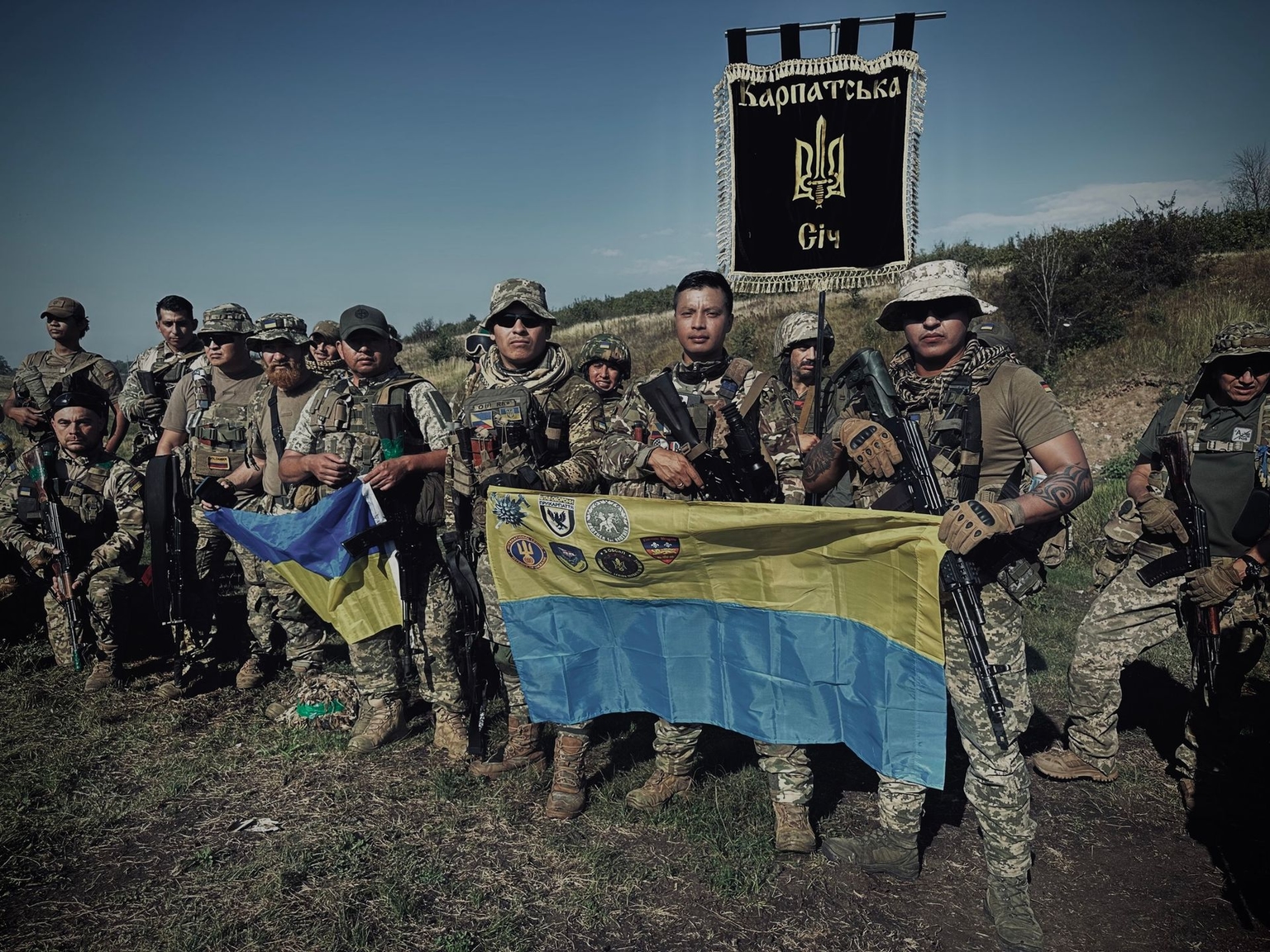
“I believe the Legion should remain united and not simply be dissolved,” he told the Kyiv Independent.
Although the exact details of the reorganization remain unclear, soldiers said they expect to be transferred to assault units and are unsure whether new commanders will prioritize their safety.
While the Legion has already carried out assault and defensive operations in some of the war’s main hot spots, including in Russia’s Kursk Oblast in 2024, the interviewees said they fear losing unit cohesion and being “utilized” in ways that could cost experienced soldiers’ lives.
“I don't want to be put into something that I'm unprepared for,” the same soldier said, explaining that it is not the assault factor that is concerning, but more the uncertainty.
“Assaulting is deadly, with a high casualty count. And any time that you send an assault with people who are unprepared, all you're doing is setting people up for failure.”
‘A spur-of-the-moment type of change’
Although the Legion has a poor reputation among many Western soldiers and veterans who have fought in Ukraine, often attributed to a lack of professional experience among some members and poorly planned missions, the legionnaires insist that, like any other unit, it has its strengths and weaknesses. For many, the Legion is a family away from home that they have built over the years and take pride in being part of.
“There is a different bond of friendship and camaraderie within military teams, and that should be preserved,” the soldier from Brazil said.
“We have already fought together for almost four years, and we do not want to be separated. I lost my best friend fighting by my side. And there are many other stories we have shared over these years of combat.”
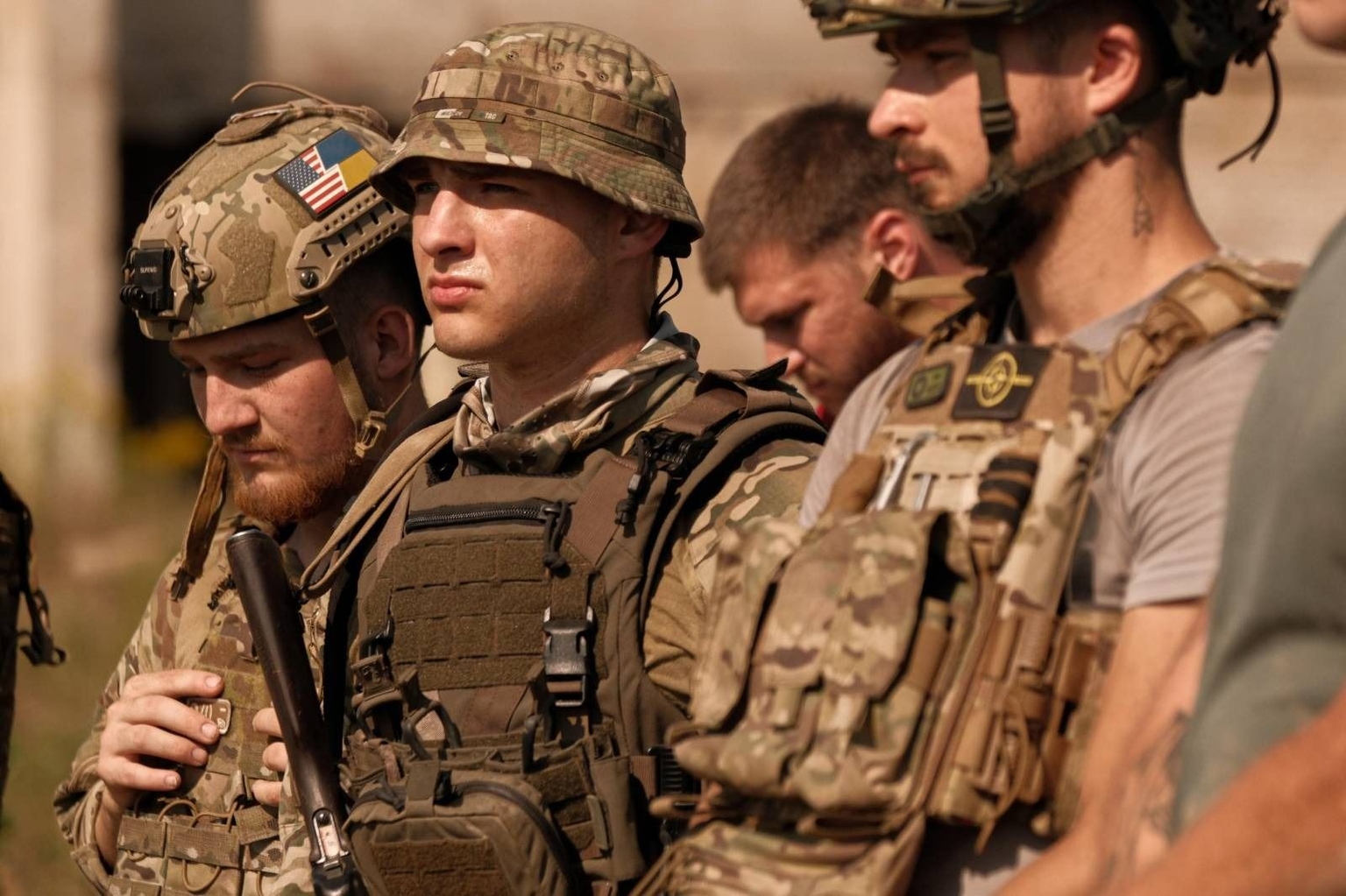
The legionnaires described the Legion as an ideal entry point for newcomers, especially those without prior military experience, to integrate with the Ukrainian army and learn crucial lessons before potentially moving to another unit.
Now thrown into limbo, the soldiers are split on whether they will stay or opt for another unit. One interviewee said their immediate friend circle has decided to stay as long as they would be working with the same people, while another said they were unsure.
“It seems kind of like a spur-of-the-moment type of change,” the soldier who plans on staying for now said.
Another soldier, an American who served in the Legion during the 2022 Kharkiv offensive but who has now moved to another unit, was more blunt.
"If they do this, a lot of people will die," he said.
A note from the authors:
Hi, this is Asami and Jared, the authors of this article. Thank you for reading it till the end. At the Kyiv Independent, we try our best to shed light on both positive and alarming developments in Ukraine. It's our job as journalists. Please consider supporting our reporting, which is available without a paywall thanks to the support of our members.


